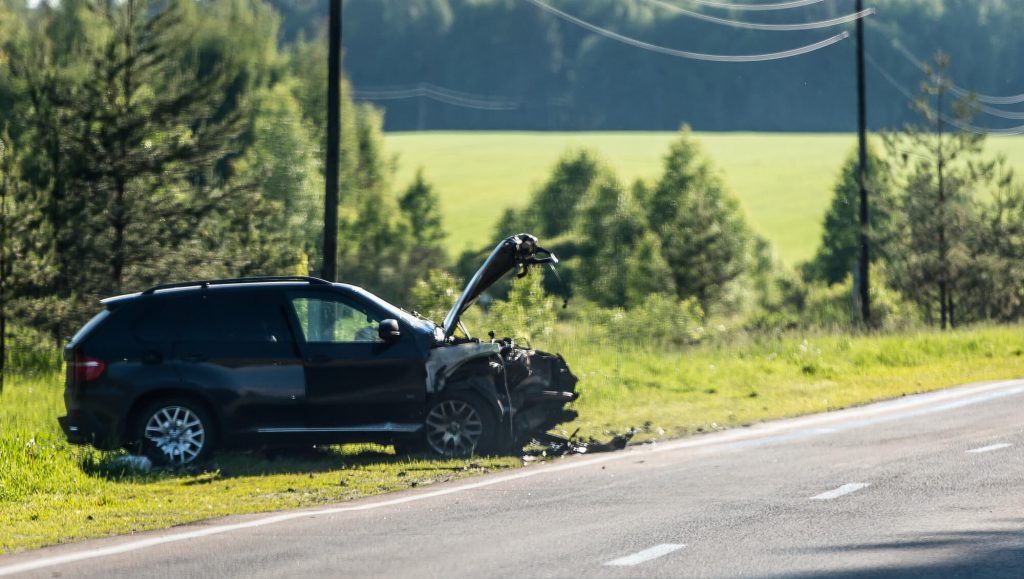The Biology and Mechanics of Injuries in an Auto Accident
The Biology and Mechanics of Injuries in an Auto Accident
 Many different injuries occur on a regular basis in an auto accident, and extensive studies have been conducted to determine why some accidents lead to injuries while others do not. This is termed the biomechanics of an injury and is an essential field of study when it comes to motor vehicle accidents.
Many different injuries occur on a regular basis in an auto accident, and extensive studies have been conducted to determine why some accidents lead to injuries while others do not. This is termed the biomechanics of an injury and is an essential field of study when it comes to motor vehicle accidents.Car accidents have the potential to cause a wide variety of injuries, and each of these injuries has its own mechanism. For example, a head-on collision can lead to the development of a femur fracture. When force is applied to the front of a motor vehicle, that end of the car could collapse. This force is transmitted into the foot of the driver (who has tried to slam on the brakes) and is transmitted through the femur, leading to a fracture. When this fracture is imaged, it is not unusual to find a concomitant pelvic fracture as well. These injuries could require surgery. If the patient loses a significant amount of blood at the scene, this has the potential of leading to wrongful death. A patient in a severe auto accident could suffer other injuries as well, such as a traumatic brain injury. The study of how and why these injuries occur is termed biomechanics.
The Study MethodsA literature review was conducted to take a look at all of the information currently available on the topic. The study points out that there are over one million deaths per year from road traffic accidents on an annual basis, a number that is far too large given the traffic schools, improvements in the safety of motor vehicles, and the advancements in medical care. However, this number is likely to only increase given the rapidly rising rate of drivers on the road. The study performed a systematic review of the literature regarding the biomechanics of injuries in auto accidents over the past twenty years. The study produced over 400 studies that took an active, experimental approach to the limits of damages that the human body can sustain. The studies looked at a wide variety of bodily locations, subject ages, and both genders. Upon review, the vast majority of studies looked at the extremities, such as the legs and the arms, or the thorax, which contains the heart of lungs.
The Gaps in the ResearchInterestingly, while there were a large number of studies on the elderly population, there was not a significant amount of information available on pediatric patients. Furthermore, there were not a lot of reviews available on the impacts of auto accidents on the physiology of the human body (in contrast to anatomy and traumatic injuries). Examples of physiological injuries that might take place include the central nervous system, the body’s blood pressure regulatory mechanisms, and the respiratory mechanisms that might be damaged. Therefore, future studies may want to take a look at these areas of research as well. These are essential areas of the body that could be damaged in a motor vehicle accident.
The Overall DiscussionLooking back over the past twenty years, there has been a tremendous amount of research performed in the field regarding the biomechanics of injuries in auto accidents. Many of the earlier studies noted deficiencies in areas of knowledge regarding the field that was subsequently corrected by talented researchers in the years afterward. It is hoped that this study will do the same. By pointing out the gaps in the research, such as human physiology and auto accidents along with the differences in the pediatric field, future researchers should be able to correct this issue. By far, the most commonly studied area of the body was the spine. About 59 percent of the studies looked at the mechanics of the cervical spine. This is probably because numerous injuries often result in this area from auto accidents. Because of the severity of this injury, these results should drive funding into research regarding C-spine injuries, hopefully leading to treatments that can help patients in the future. Finally, there was a gap in the study of abdominal injuries. This is likely due to the limited lifespan of cadaver organs in the abdomen. Because of the rapid deterioration in this area of the body, there isn’t a large window for research to be conducted on abdominal trauma. Future studies should try to mitigate this limitation and find ways to study injuries that take place in this area of the body. These often result from penetrating trauma or improper seat belt use.
Watch YouTube Video: Top 8 Common Reasons for Car Accidents. This video provides the top eight common reasons why car accidents occur.
Sacramento Personal Injury LawyersI’m Ed Smith, a Sacramento Personal Injury Lawyer. Car accidents have the potential to cause a wide variety of injuries. If you or someone you love has been hurt in an accident and need legal assistance from an experienced injury lawyer, call me for free, friendly advice at 916.921.6400 or (800) 404-5400.
We are members of the Million Dollar Advocates Forum and the National Association of Distinguished Counsel.
See our case history of verdicts and settlements and our client reviews on Google, Yelp, and Avvo.
Editor’s Note: This page has been updated for accuracy and relevancy [cha 11.5.20]
Image Attribution: Depositphotos.com
:dr cha [cs 874]